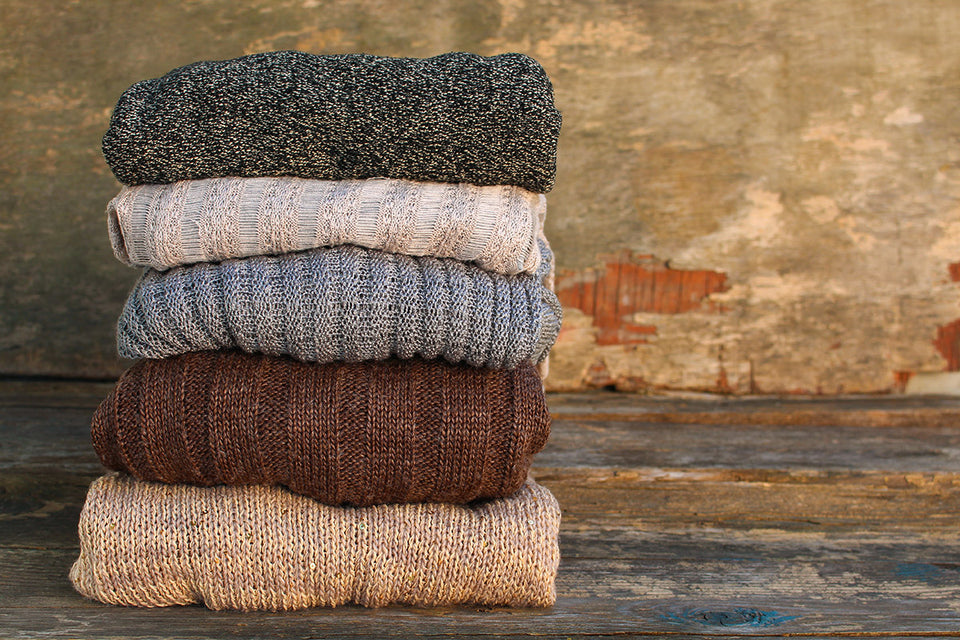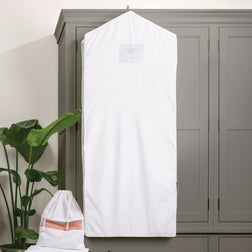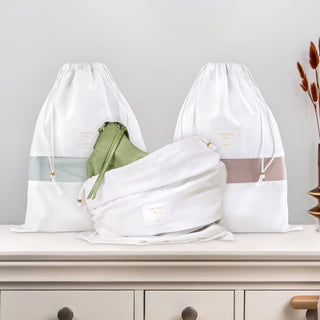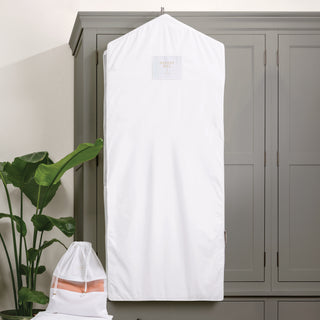Getting your clothes and closet ready for a new season can take a bit of work. Extra care is required when packing away unneeded items and retrieving new items. But, by following these nine tips, your most treasured and valuable winter pieces of clothing will be ready to wear when winter returns.
After a long winter, you are likely excited to put your winter clothing away and unpack your spring and summer items. It’s natural to want to put seasonal items in a bin and shove them into a corner of an unused closet. But improper storage could damage your priceless cashmere, wool, and other delicate items.
Instead, follow this advice to keep your items in pristine condition and ready to be worn when winter returns.
9 Tips for Storing Winter Clothes
1. Sort Your Winter Clothes
Before packing anything away in storage, go through your winter pieces to decide if there’s anything you would like to donate or recycle. After a season of wearing the same items, there are probably a few you are ready to part with, or some clothes you didn’t wear at all.
Sorting through your clothes at the end of the season is an excellent way to make room for the next season’s clothing.
2. Launder and Mend Your Clothing

The next step is to launder the items you have decided to keep and place in storage. Even if no stains or odors are detectable, you should still wash everything. Unseen spots could become noticeable and permanent over time. And, items with any remaining odors can attract pests like moths.
Sort clothing into stacks for dry cleaning, hand wash, and machine washing; then take them to the appropriate place. Examine sweaters for pills and remove any you find with a de-pilling tool. This is also the best time to mend any loose threads, missing buttons, and broken zippers.
Additionally, look at your winter footwear. Cleaning and polishing your boots ensures they are ready for next season.
3. Separate Clothing into Those to Be Folded vs. Hung
Generally, you should fold clothing that could lose shape or stretch out when placed on a hanger, and hang clothing that may wrinkle or get damaged if folded.
For winter clothing, this means that sweaters should be folded up, and pleated winter skirts, down and wool coats, and business attire should be hung.
To give vintage garments some added protection, place a layer of acid-free tissue paper in the sleeves and between the folded layers. Tissue paper adds some structure, protects embellishments, and stops color transfer.
4. Select Containers for Storage

Though you shouldn’t use plastic storage containers for long-term use, they are a good option for seasonal storage. Especially when compared to cardboard storage boxes, which:
- Break down easily
- Are less sturdy than plastic bins and can’t be stacked with heavy contents
- Are vulnerable to pests
- Allow clothing to develop stains if stored for too long
Clothing in storage must be dry at all times. That is the one disadvantage of plastic containers. While they keep moisture out, they also retain trapped moisture, which can produce mould and mildew. That said, putting winter clothes in plastic storage bins for a few months is usually safe.
Remember to avoid overfilling the containers. Any items made of natural fibres need space to breathe. Plus, items that have enough space wrinkle less.
5. Choose Garment Bags for Items to Be Hanged
As tempting as it is to store your dry cleaned clothing in its plastic bag, don’t do it! The dry cleaning process contains no moisture, only liquid chemicals. In the event your clothes were not properly dried and are kept in a plastic bag, the items may stain. Worse, dry cleaning bags invite mould and mildew growth.
To protect garments such as wool coats, suit sets, or dresses, store them in high-quality, breathable garment bags. Hayden Hill bags offer your most treasured items superior protection. While made of breathable cotton, they protect clothing from dust, light, moths, mould and condensation.

6. Avoid Vacuum-Sealed Bags
Though vacuum-sealed bags are popular, clothing doesn’t benefit from being stored in a plastic bag with all the air removed. Down jackets, wool and cashmere clothing, and leather items should never be put in a vacuum-sealed bag.
Remember, natural fibres need to breathe. Removing air from the bag could result in permanent compression, which causes a loss in shape and form. Sometimes the items do gradually bounce back to their regular shape, but others won’t. It is best not to risk it.
Vacuum-sealed bags can also be faulty. Since the bags are plastic, they may hold in moisture. Lower-quality bags may yellow when exposed to heat or sunlight. Don’t risk your precious wardrobe; use plastic storage bins instead.
7. Keep Stored Clothes Smelling Fresh
No matter how clean, there is a chance that your clothes will still smell a little musty when you get them out of storage. One of the best ways to prevent odour is to place a couple of dryer sheets in the garment bag or storage container. You can also add a sweet-smelling sachet or dried lavender.
If you are concerned about moisture, consider adding some desiccant packs to soak up the humidity. Cedar is another excellent option. You can place cedar chips, balls, sachets, or use cedar hangers for your winter clothes.
8. Prevent Pests
One of the biggest concerns when storing winter clothes is moths and other bugs. Cleaning your closet after removing winter clothes is one way to prevent pests.
It’s also a good idea to place moth prevention items in your closet such as moth traps or cedar blocks, chips, and balls.
9. Select a Storage Location

Sometimes the question is not how to store winter clothes but where. The best spot is a climate-controlled location that is naturally cool, dark, and dry. Stored clothing should be kept away from direct sunlight and heat.
If you cannot store your clothing in a secondary closet, the next best option is an air-conditioned, climate-controlled storage unit.
FAQs
1. How do you store winter clothes?
The best way to store winter clothes is to put freshly laundered and folded items in a plastic container. Store the bin somewhere dark, cool, and dry, preferably with temperature controls. Add cedar or lavender to keep clothes smelling fresh while in storage and to repel pests.
2. How do you store winter clothes so they don’t smell?
To prevent stored winter clothing from smelling, wash the clothes before putting them away. You can also use deodorisers, such as scented sachets and dryer sheets in the container to keep clothes fresh.
3. How do you store clothes for a few months?
If you want to store clothing for a few months, the same rules apply. Wash, dry, and mend all clothing before folding or hanging. Folded items should be placed in a plastic storage container. Hung items should be placed inside garment bags. Place stored clothing in a location away from sunlight and heat, such as a spare closet or a climate-controlled storage unit.
4. Can I store my winter clothes in the garage?
Probably not. Both the garage and the attic are the least ideal places to store clothing. You want to choose a spot that is dark, dry, and cool. If you can’t find a temperature-controlled location, it may be best to get a storage unit.

Getting your clothes and closet ready for a new season can take a bit of work. Extra care is required when packing away unneeded items and retrieving new items. But, by following these nine tips, your most treasured and valuable winter pieces of clothing will be ready to wear when winter returns.








